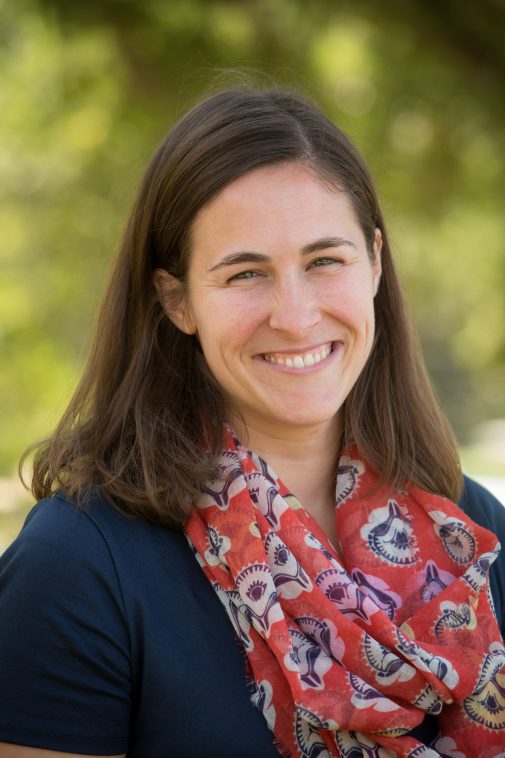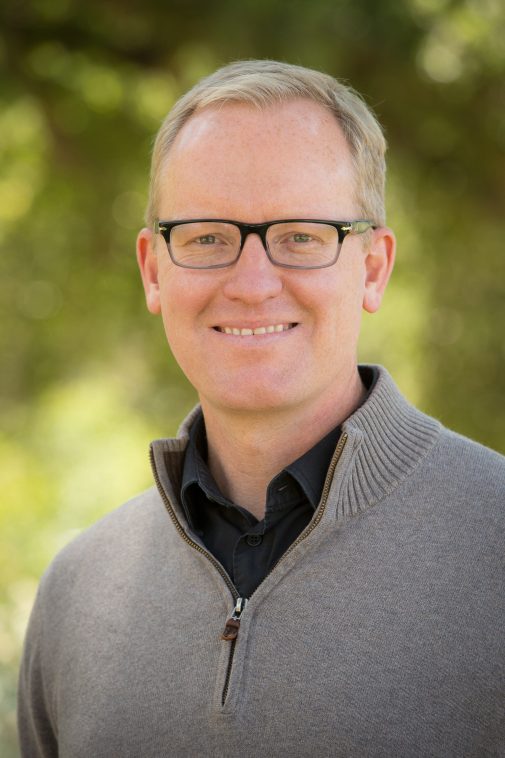Notable Professors Join Westmont Faculty
By
Westmont

Four distinguished tenure-track professors join Westmont’s faculty this fall: Elizabeth Gardner (communication studies), Carmen McCain (English), Jonathan Mitchell (physics) and Serah Shani (anthropology).
Gardner, a graduate of Houghton College, earned a master’s degree and is finishing her doctorate at the University of Maryland, where she has also taught several classes in public speaking, rhetorical criticism, argumentation and oral communication. In 2014, she received the National Communication Association’s Benson-Campbell Dissertation Research Award. She has been the managing director of the Oral Communication Program at the University of Maryland since 2013. At Westmont, she will teach rhetorical criticism and public speaking. “I love getting to know students well,” she says, “and when they are up in front of the class, they’re a little nervous. But you get to know them well because they’re always talking, and that’s the purpose of the course.”
During the spring of 2015, Gardner consulted for the American Studies Program in Washington, D.C., which she attended as an undergraduate. Her current research focuses on social change and the rhetorical construction of childhood. Her dissertation examined the use of argument in the child labor reform movement of the early 1900s. “Adolescence wasn’t a thing until around 1900,” she says. “That’s the first we hear of this special time when you’re supposed to conserve your energy and need to be sheltered. It’s interesting to see how those historical evolutions are still playing out and have different implications.”

McCain, a former senior lecturer in the English department and the School of Visual and Performing Arts at Kwara State University in Nigeria, will develop Westmont’s Anglophone literature curriculum, especially the literature of the “global south,” which includes Africa, Latin America and developing Asia, including the Middle East.
She came to Westmont for a summer seminar in 2007 and remembered the campus being one of the most beautiful she’d ever seen. “I’ve been impressed by the friendly conversations with interesting people,” she says. “This community is supportive and scholarly, and I look forward to navigating both those things well.”
McCain graduated from Messiah College and completed a doctorate at the University of Wisconsin, Madison, in the Department of African Languages and Literature. Her current research focuses on postcolonial literature, film and popular culture in Africa. She has a special interest in Nigerian Hausa-language cinema and the translation of Hausa texts into English. At Kwara State, she led the new Centre for Nollywood Studies, an institute devoted to analyzing Nigerian film. Carmen has been exploring responses in literature, film and music to the Boko Haram insurgency. She also worked with her brother, Dan, on a film, “Nowhere to Run,” which examined environmental degradation in Nigeria due to climate change and reckless oil production.
“Literature helps us think about the world,” she says. “It’s a lens through which we view the world. It’s not just thinking about people writing, it’s what are they writing about and how that speaks to things we see going on in the world around us.”

Mitchell ’00, a Westmont alumnus who earned a master’s degree and doctorate in astronomy and astrophysics at the University of Chicago, was a tenured professor of atmospheric and oceanic sciences at UCLA. “I had an excellent experience at Westmont and have come to appreciate it the longer I’ve been away,” he says.
He has been an Einstein Fellow and a W.M. Keck Foundation Fellow at the Institute for Advanced Study at Princeton University. His primary research interest is understanding planetary phenomena, including surface-atmosphere interactions on Titan, the largest moon of Saturn. He is also interested in superrotating atmospheres, tidal interactions of synchronous satellites and Earth’s paleoclimate. Jonathan has been the recipient of grants from NASA and has served on a NASA review panel.
“Basically, I study climate broadly defined: Earth’s climate, Earth’s past climate, Titan’s climate,” he says. “When I was a student here, the debate was just beginning about global warming and global change. It’s really heated up, so to speak, in the intervening 20 years. I’m excited to bring that expertise here as we learn about how the environment works, how we influence it and consider our moral responsibilities for it.”

Shani, who earned a doctorate from Columbia University, was a visiting professor at Eastern University. She holds three master’s degrees: sociology of health and medicine from Indiana University of Pennsylvania, international and transcultural studies from Columbia, and anthropology and education from Columbia. A native of Kenya, she completed her undergraduate degree at Daystar University, concentrating on community development and music. She speaks five languages: English, Swahili, Maasai, Kisii and Kikuyu. She is conducting research on African-immigrant parents and schooling in the United States, focusing on Ghanaians in New York City, which will be the subject of a forthcoming book.
Shani has lectured and taught at Yale, Southern Connecticut State, Cornell and Columbia. Her presentations have explored many topics, including Islam, parenting, African diaspora, and water, sanitation and health concerns. “My research interests lie broadly in exploring the social life of cities,” she says, “and more particularly the informal and innovative strategies by which different ethnic and racial urban residents claim their rights to the city. My current research looks at urban migration, transnational movements, identities and the sociocultural economic adaptation for recent African immigrants to the United States.”
Filed under
Academics, Admissions, Alumni, Campus News, Faculty and Staff, Press Releases